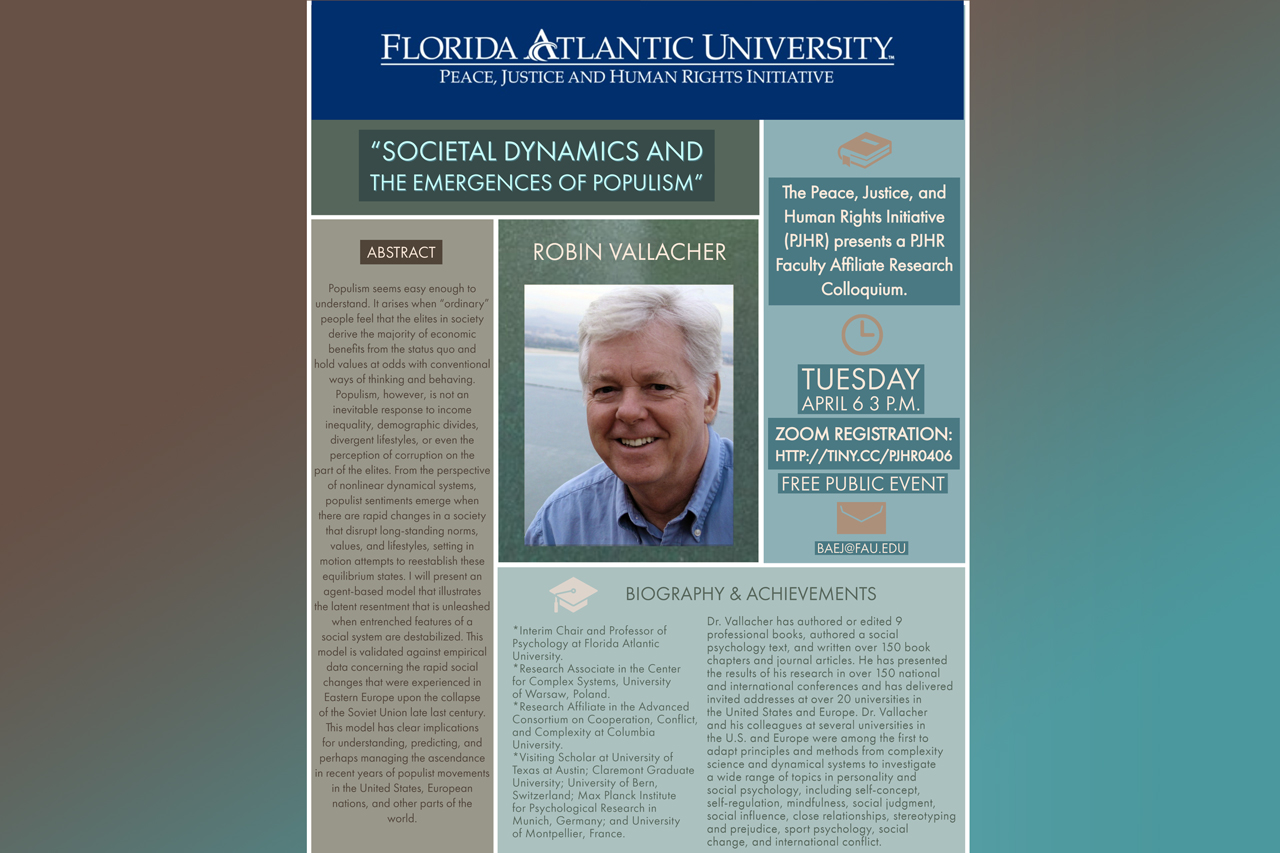Societal Dynamics and the Emergences of Populism - Robin Vallacher, Ph.D.
Wednesday, Mar 24, 2021
A PJHR Faculty Affiliate Research Colloquium Event
Populism seems easy enough to understand. It arises when "ordinary" people feel that the elites in society derive the majority of economic benefos from the status quo and hold values at odds with conventional ways of thinking and behaving. Populism, however, is not an inevitable response to income inequality, demographic divides, divergent lifestyles, or even the perception of corruption on the part of the elites. From the perspective of nonlinear dynamical systems, populist sentiments emerge when there are rapid changes in a society that disrupt long-standing norms, values, and lifestyles, setting in motion attempts to reestablish these equilibrium states. I will present an agent-based model that illustrates the latent resentment that is unleashed when entrenched features of a social system are destabilized. This model is validated against empirical data concerning the rapid social changes that were experienced in Eastern Europe upon the collapse of the Soviet Union late last century. This model has clear implications for understanding, predicting, and perhaps managing the ascendance in recent years of populist movements in the United States, European nations, and other parts of the world.
BIOGRAPHY & ACHIEVEMENTS
- Interim Chair and Professor of Psychology at Florida Atlantic University
- Research Associate in the Center for Complex Systems, Universityof Warsaw, Poland.
- Research Affiliate in the Advanced Consortium on Cooperation, Conflict, and Complexity at Columbia University.
- Visiting Scholar at University of Texas at Austin; Claremont Graduate University; University of Bern, Switzerland; Max Planck Institute for Psychological Research in Munich, Germany; and University of Montpellier, France.
Dr. Vallacher has authored or edited 9 professional books, authored a social psychology text, and written over 150 book chapters and journal articles. He has presented the results of his research in over 150 national and international conferences and has delivered invited addresses at over 20 universities in the United States and Europe. Dr. Vallacher and his colleagues at several universities in the U.S. and Europe were among the first to adapt principles and methods from complexity science and dynamical systems to investigate a wide range of topics in personality and social psychology, including self-concept, self-regulation, mindfulness, social judgment, social influence, close relationships, stereotyping and prejudice, sport psychology, social change, and international conflict.
Free Public Event. For more information, email baej@fau.edu
(View flyer)


